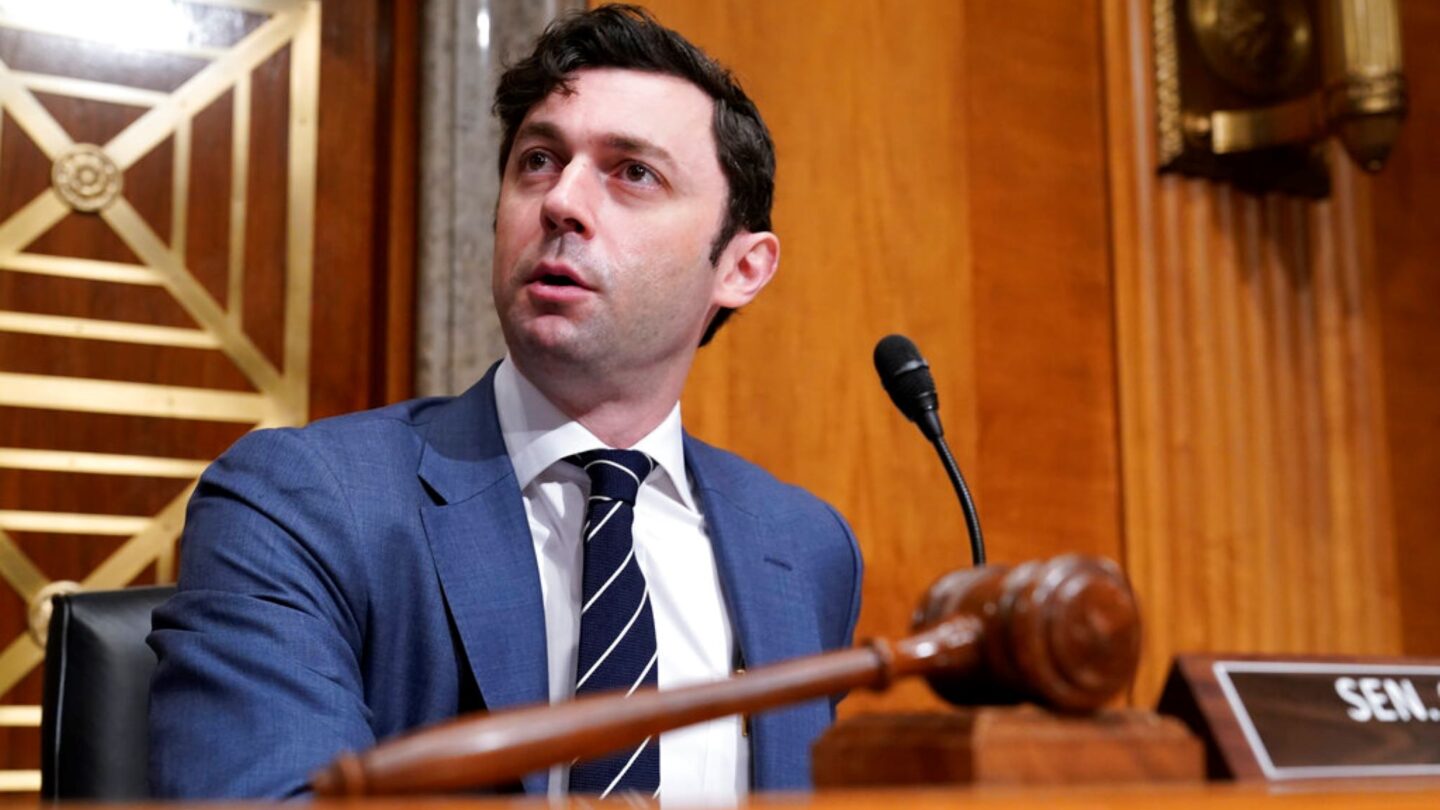‘Stunning, long-term failures’ found in probe of Atlanta penitentiary

U.S. senators on a Homeland Security panel on Tuesday detailed years of abuse at U.S. Penitentiary Atlanta that the committee found in an unreleased bipartisan investigation.
“The evidence the Subcommittee has secured to date reveals stunning long-term failures of federal prison administration that likely contributed to loss of life, jeopardized the health and safety of inmates and staff, and undermined public safety and civil rights in the State of Georgia and the Southeast Region of the United States,” Georgia Democratic Sen. Jon Ossoff, the chair of the Permanent Subcommittee on Investigations, said in his opening statement.
Ossoff said the report, conducted over the last 10 months, found that “gross misconduct persisted at this facility for at least nine years, and that much of the damning information revealing misconduct, abuse, and corruption was known to (the Bureau of Prisons) and accessible to BOP leadership during that period.”
The committee has not released the report to the public, as congressional staff are still wrapping up final testimony from the departing federal Bureau of Prisons director, Michael Carvajal.
The ranking member of the panel, Republican Sen. Ron Johnson of Wisconsin, said congressional oversight has become weak over the years and expressed his frustration that the Department of Justice did not cooperate with the panel during its investigation.
He said it’s important for whistleblowers, like one of the witnesses, to speak up, so lawmakers know what is happening at these facilities.
“We have to be asking how prevalent is this?” Johnson said. “We need whistleblowers coming forward.”
Ossoff said that the conditions for inmates and those awaiting trial, meaning they have not been convicted of a crime and are assumed innocent, are “abusive and inhumane.”
Rats, roaches
The report found that inmates were routinely denied nutrition, clean drinking water, hygiene products and proper medical care. The report found that cells were infested with rats and roaches.
Some incarcerated people were locked in solitary confinement for months and only given a Bible as reading material, according to the report.
The report also found that technology to screen for drugs and weapons was disabled by BOP staff.
“Given these conditions, it is perhaps not surprising that USPA has led the nation’s federal prison facilities in suicides, and four of the last four inmates deceased from suicide were found to have been using narcotics at the time of their death,” Ossoff said.
Senators questioned Carvajal about why the misconduct persisted for years. Carvajal is leaving his position, and a new director, Colette S. Peters, formerly director of the Oregon Department of Corrections, will be sworn in next week.
Carvajal said that since the summer of 2021, the agency has worked to address problems. He said the bureau has hired more staff to address work shortages, instituted training for upper management and investigated corruption within its own ranks.
California prison
Sen. Alex Padilla, a California Democrat, said his office has received reports that the FCI Mendota prison in California has not been following proper COVID-19 protocols and that there are frequent outbreaks in the facility.
He said that he and Sen. Dianne Feinstein, a California Democrat, sent the Justice Department a letter in April, asking about the lack of COVID-19 safety precautions.
“We take these allegations seriously,” Carvajal said, adding that there is zero tolerance for not following policies.
Padilla said he and Feinstein did not receive adequate answers to their questions.
“We sent you a letter saying that we’re hearing that protocols are not being followed,” he said. “We communicated to you months ago that we understand they aren’t being followed.”
Ossoff said that with Carvajal departing, and a new director coming in, change at the Bureau of Prison needs to happen immediately.
“These issues are deeper than your leadership, personally,” Ossoff said. “This is clearly a diseased bureaucracy, and it speaks ill to our national values and our national spirit that we let this persist year after year.”
Former workers testify
Several witnesses who worked at the facility and within the Department of Justice also appeared before the committee.
Rebecca Shepard, a staff attorney at the Federal Defender Program Inc., said that many of her clients, who are pre-trial, have had their trials delayed because prison staff do not allow the clients time to meet with their attorneys.
Sometimes it can take several weeks to meet with a client, she said.
“The whole prison sounds like a horror show,” Johnson said.
Shepard testified to senators about the “unacceptable conditions of confinement for clients who are detained pre-trial.”
“Its failures have harmed our clients, impeded our ability to adequately represent our clients, and delayed the resolution of their cases,” she said.
Another witness, Erika Ramirez, the former chief psychologist at U.S. Penitentiary Atlanta, said the lack of screening and routine drug testing made it difficult for her and her staff to assess whether a patient was having mental health problems or was intoxicated.
“We always have to assume that the inmate is intoxicated,” she said. “It creates a delay in implementing a treatment plan.”
Johnson asked a whistleblower, Terri Whitehead, a former jail administrator at the facility, what her impression was when she started working there in the summer of 2020.
“I was shocked,” she said.
Whitehead had worked in about eight prison facilities before she came to U.S. Penitentiary Atlanta. She said while working there, rats were getting into food for inmates, there was visible mold on the walls, there was not enough clothing for inmates, staff did not implement a mask mandate until late 2020, and there was frequent marijuana use.
She said after her first day at the Atlanta facility, she sat in her car and “all I could come up with was, ‘What the hell?’”
Whitehead said she reported her concerns to management and was simply told it was “the Atlanta way.”
She said she retired in 2021, earlier than she planned.
Ossoff, Padilla and Johnson were the only senators to attend the hearing.
Senators on the subcommittee besides Ossoff and Padilla include Democratic Sens. Tom Carper of Delaware and Maggie Hassan of New Hampshire; and Republican Sens. Rand Paul of Kentucky, James Lankford of Oklahoma and Rick Scott of Florida.
This story was provided by WABE content partner Georgia Recorder.








